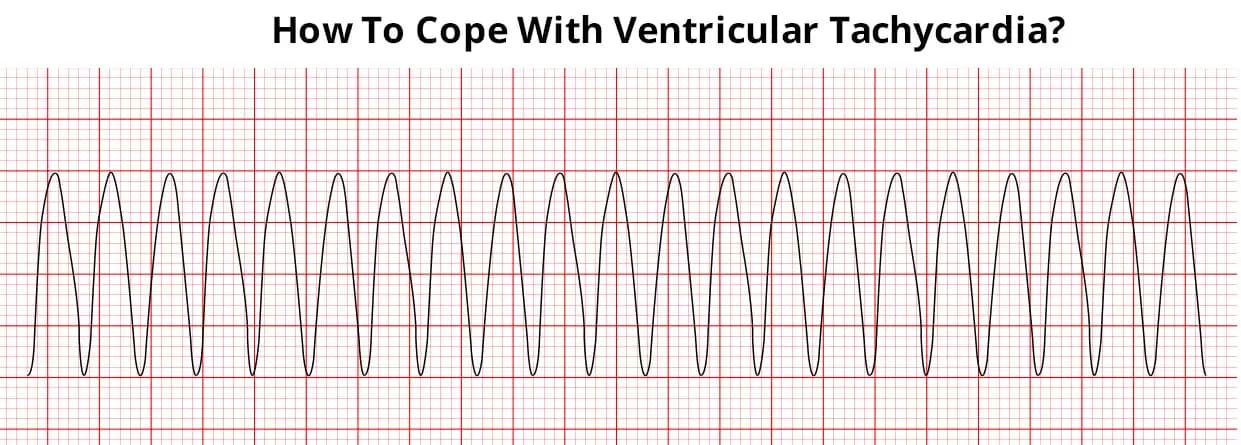
Ventricular tachycardia refers to the cardiac disorder which results in abnormal heart rhythm. People with ventricular tachycardia complain about arrhythmia due to irregular electrical signals in the lower chambers of the heart. Also referred to as V-tach or VT, symptoms can be brief and may last for a short while without causing any major harm.
Heart conditions have become a common disorder in people across the world. While most people may not know they have an underlying heart condition, it is only after the symptoms become severe, the condition becomes apparent. One of the common cardiac disorders related to heart rhythm is known as ventricular tachycardia.
Ventricular tachycardia refers to the cardiac disorder which results in abnormal heart rhythm. People with ventricular tachycardia complain about arrhythmia due to irregular electrical signals in the lower chambers of the heart. Also referred to as V-tach or VT, symptoms can be brief and may last for a short while without causing any major harm.
A healthy human heart beats about 60 to 100 times per minute. But in the case of ventricular tachycardia, the heart beats faster (usually more than 100 beats per minute). This causes the heart to beat too fast which prevents the oxygenated blood to reach the different parts of the body. Depending on the severity of the condition, people are generally at an increased risk of ventricular tachycardia if they are older, have an existing heart condition, history of a heart attack.
Ventricular tachycardia symptoms usually vary from one patient to another. Sometimes, symptoms may not be apparent and you may not even know you are suffering from the disease. Therefore, it becomes quite difficult to know if your condition is ventricular tachycardia or any other medical condition.
But, patients with ventricular tachycardia symptoms for more than 30 seconds, may experience severe symptoms like dizziness, fainting, fatigue, chest pain, shortness of breath, drop in blood pressure, etc. Prolonging the treatment can increase the risk of a heart attack which can eventually be fatal.
The heart rate of a healthy human heart is stimulated by electrical impulses which trigger each rhythm of the heart. But when the process is disrupted and the electrical signals rapid, the ventricles do not get enough time to fill with blood before the heart contracts. This leads to ventricular tachycardia.
The lower chambers of the heart fill the blood from the top chambers of the heart and send it to the rest of the body. When the heart is unable to pump enough blood to the rest of the body, it can produce symptoms like dizziness, fainting, etc. While the exact cause of ventricular tachycardia is still debatable, it is triggered by another heart condition. Possible ventricular tachycardia causes include -
Most patients with chronic heart conditions are usually at risk of ventricular tachycardia. While there is no known cause of ventricular tachycardia, there are certain ways to prevent the condition from progressing further. Doctors may suggest different treatment options such as medication or an implantable device to lower your risk of developing arrhythmia and regulate your heartbeat.
If the symptoms of ventricular fibrillation last longer than 30 seconds, the treatment becomes inevitable. The goal of the treatment is to stabilize the rapid heartbeat and prevent its recurrence in the future. However, if there is another medical condition that is responsible for tachycardia, the doctor may suggest the most effective treatment option based on medical health and preference.
In case of emergency, the cardiologist often suggests cardioversion which sends electric shocks to the heart through sensors placed on the chest. The shock affects the heart’s electrical signals to regulate a heartbeat. Furthermore, the doctor may recommend surgical procedures such as -
Ventricular tachycardia symptoms can be managed through an early approach and proper treatment. Going for regular health checkups and monitoring your heart health can help prevent serious health conditions. Additionally, there are some preventive measures that can help you keep healthy heart health -
The long-term outlook for people with ventricular tachycardia is usually promising if treatment is received in time. It is important to be aware of the symptoms and get timely treatment before the condition becomes worse. Since most ventricular tachycardia symptoms go undetected, regular health checkups must be encouraged to keep a check on your heart health.
Furthermore, advancements in medical technologies have paved the way for implanted devices. This medical equipment can reduce the risk of complications. These implants can stimulate artificial electrical impulses and keep the heart beating properly. Discuss your symptoms with the tachycardia specialist doctor to determine the best course of treatment for you. If not an implanted device, then medications may be prescribed to lower your risk of heart disease.
Possible complications of untreated ventricular tachycardia include the following -
Patients with ventricular tachycardia are usually at a higher risk of different cardiac disorders which can be fatal. Abnormal heart rhythm if left untreated can have a high mortality risk of about 20% at 2 years. Discuss your symptoms with the doctor for early treatment and prevent the risk of death.
Ventricular tachycardia diagnosis involves a combination of physical exams and several diagnostic tests to assess the heart condition. Diagnostic tests for V-Tach include -
Written and Verified by:

Dr. Rakesh Sarkar is a Senior Consultant in Cardiology & Electrophysiology at BM Birla Heart Hospital, Kolkata, with over 11 years of experience. He specializes in complex arrhythmia management, including atrial fibrillation, ventricular tachycardia, CRT-D, and conduction system pacing.
Similar Cardiology Blogs
Book Your Appointment TODAY
© 2024 BMB Kolkata. All Rights Reserved.